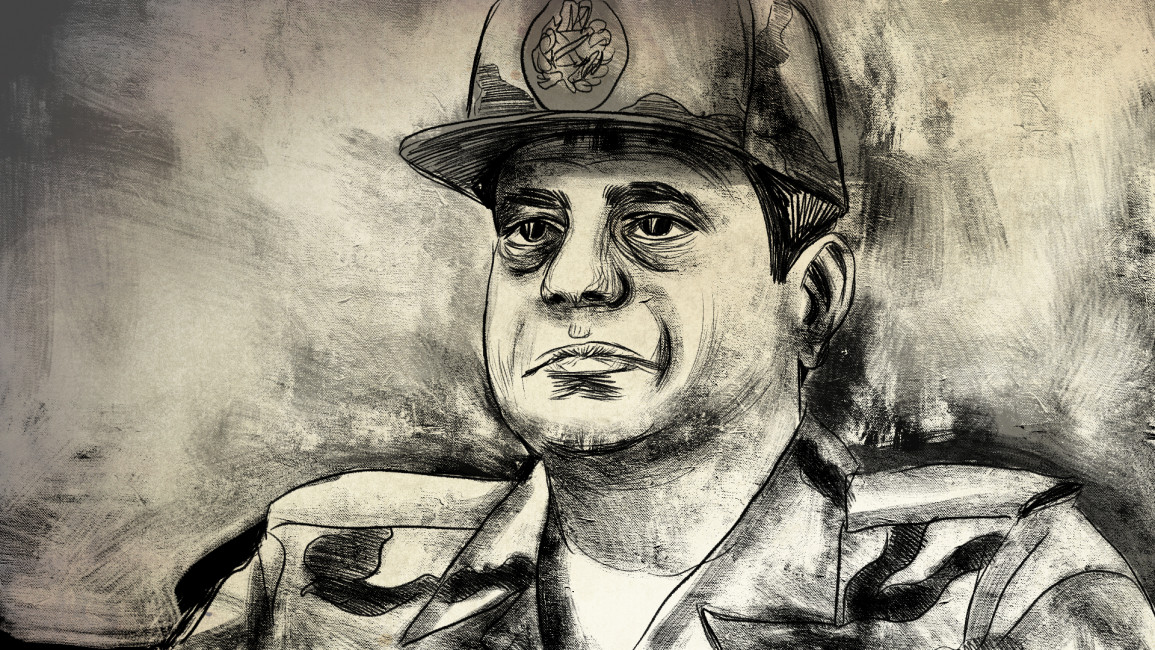
Sisi: The “Hero” of Gaza
Every time Israel launches an assault on Gaza, Arab eyes turn towards Egypt - not only because of its regional influence, but because it is the only Arab country that directly borders the embattled coastal enclave. Egypt’s leadership influences events in Gaza. Since the signing of the Camp David Accords in 1978, Egyptian leaders have been biased intermediaries in Palestinian affairs. They play the role of an Israeli messenger, threatening and intimidating the Palestinian people and pressuring them into making concessions. Because of the role Egypt has come to play, many Arabs consider the Egyptian regime a partner in any assault on Gaza.
President Anwar al-Sadat’s 1977 statement that the US holds "99 percent of the cards" in the Middle East marked the transition of the Egyptian position from confrontation with Israel to confrontation with Israel’s opponents in the Arab World. Sadat also spoke of handing all his cards to Washington and the Israelis. The Camp David Accords translated this sentiment into a more concrete form, completely transforming Egypt’s regional role. Egypt did not withdraw from Arab politics, nor did it remain neutral in the Arab-Israeli conflict. Instead, under Mubarak it gradually turned into Israel’s trusted partner in security.
| Sisi’s performance during the recent war on Gaza surpassed that of all his predecessors |
Egypt lost its leading political role in the region and failed to bring prosperity to its people or increase economic growth - both excuses used by Egypt’s leadership to justify changing its position on Israel. The economy deteriorated, and poverty and unemployment increased with the adoption of open-door economic policies. Increased corruption and the plundering of public funds followed. The imposition of emergency law and the construction of a police state led to oppression and tyranny. The accumulation of grievances led to the eruption of the January 25 revolution, but the incomplete nature of the uprising meant Egyptian policy towards Palestine and the Palestinians remained unchanged.
Egypt’s role as an intermediary did not change under President Mohamed Morsi. The 2012 Gaza war saw no fundamental strategic developments in Cairo. The Egyptian ambassador was recalled from Tel Aviv and international official and popular delegations were allowed solidarity visits into Gaza, while the essence of Egypt’s intermediary role remained the same. Shimon Peres commended Morsi’s role in the conflict to Tony Blair, Haaretz reported, saying that Hamas did not listen to Morsi but Israel was attempting to work with him anyway. This was demonstrative of the Muslim Brotherhood’s lack of revolutionary spirit. In its pursuit of an understanding with the Egyptian military and the US, the Brotherhood chose to preserve the Camp David Accords and did not attempt to stop Egyptian intelligence agencies coordinating with the Israelis over Gaza.
However, President Abdul Fatah al-Sisi’s performance during the most recent war on Gaza surpassed that of all his predecessors, even outshining the complicity of Mubarak’s regime. Sisi sent Egyptian Intelligence Chief Mohamed Farid al-Tohami to Israel two days before the assault, a move strongly reminiscent of Tzipi Livni’s visit to Cairo a few days before the 2008 Gaza attack. The beginning of the Israeli campaign on Gaza coincided with the Egyptian army’s announcement of 19 tunnels being destroyed in Rafah, an indication that Egyptian security and intelligence cooperation with Israel against the resistance is growing ever closer.
This cooperation led UN Secretary-General Ban Ki-moon to ask Sisi to alleviate the suffering in Gaza by opening the Rafah border crossing - while the Egyptian foreign ministry described the assault on Gaza as “mutual violence”, as if the battle was between two equal parties. The statement did not even hold Israel responsible for the assault; its language was carefully neutral.
The siege on Gaza under Sisi’s rule is different from its incarnation during Mubarak’s era. Egyptian complicity is now not limited to closing the border crossing or destroying tunnels, it surpasses all of that by naming Hamas – the leading resistance movement in Gaza, and a political party elected democratically – as a “terrorist” movement. Media owned by or loyal to the Egyptian regime incite opposition to the resistance in Gaza, claiming Gazans deserve their fate and condemning them in the court of Egyptian public opinion. In Mubarak’s era, this resentment towards the resistance and the people of Gaza did not exist, and there was more popular solidarity with Gaza.
Nationalists and leftists have praised Sisi, deeming him a hero and claiming he would end Egypt’s subordination to the US. However, he has proven on a daily basis that he has far exceeded Mubarak in stunting Egypt’s regional role. He plays a hero by imposing a siege on Egypt and limiting its regional role; in a very real sense, this is the primary siege from which the blockade in Gaza derives - we cannot expect the Gaza siege to end before the self-imposed siege of Egypt also comes to an end.
Any revolutionary change in Egypt would require liberation from the shackles of the Camp David Accords and a return to a more natural position of confrontation with Israel. Merely changing the person in the chair while leaving the policies intact is not the result of a revolution.
This article is an edited translation from Al-Araby al-Jadeed




